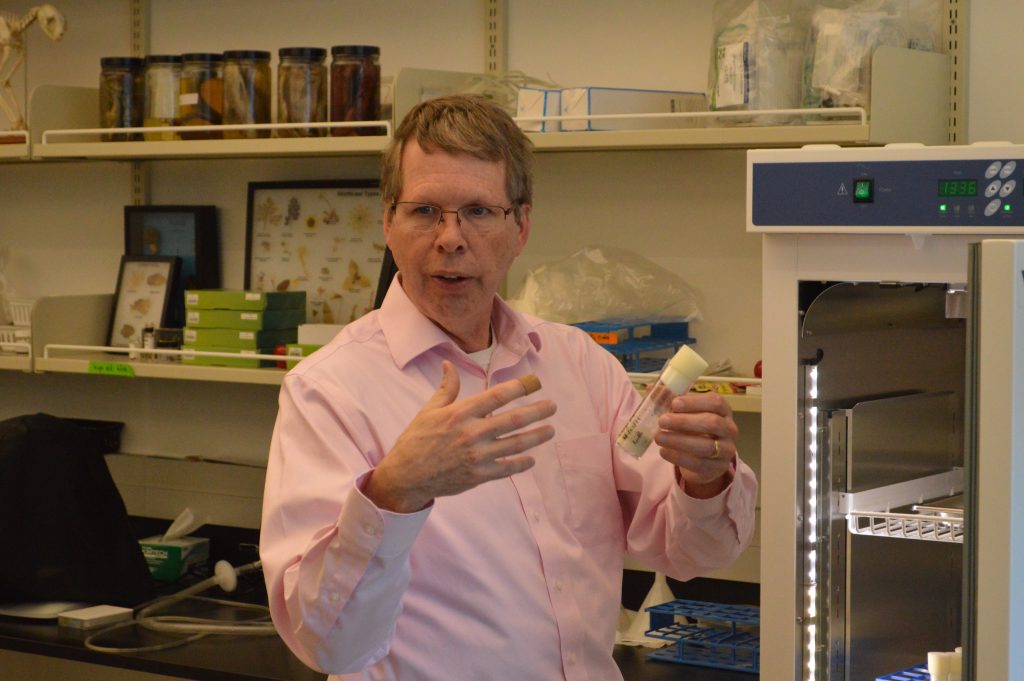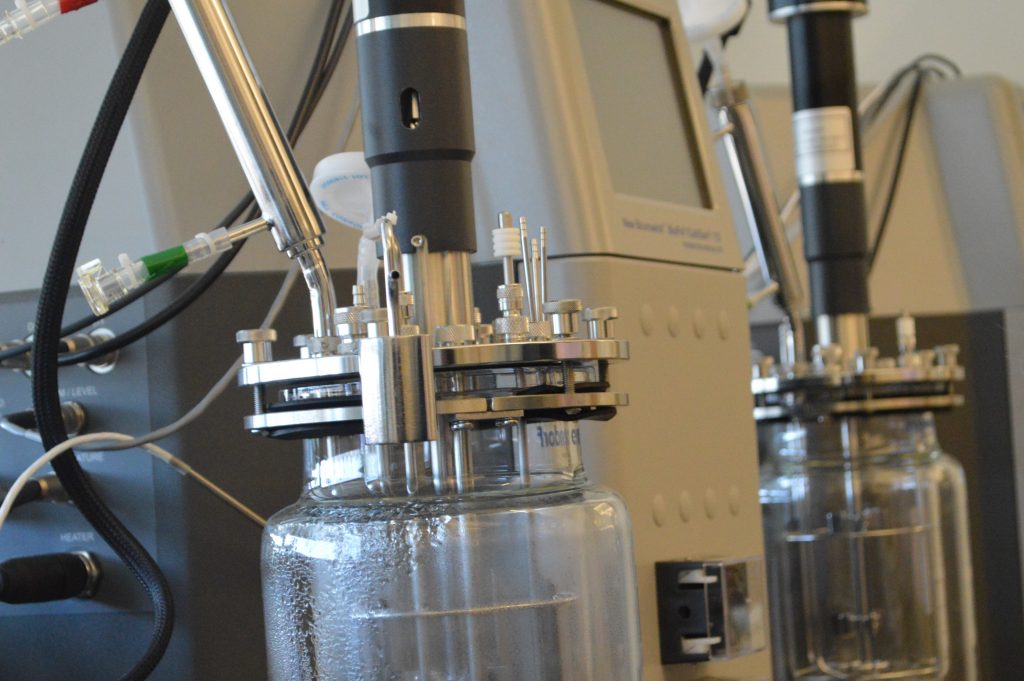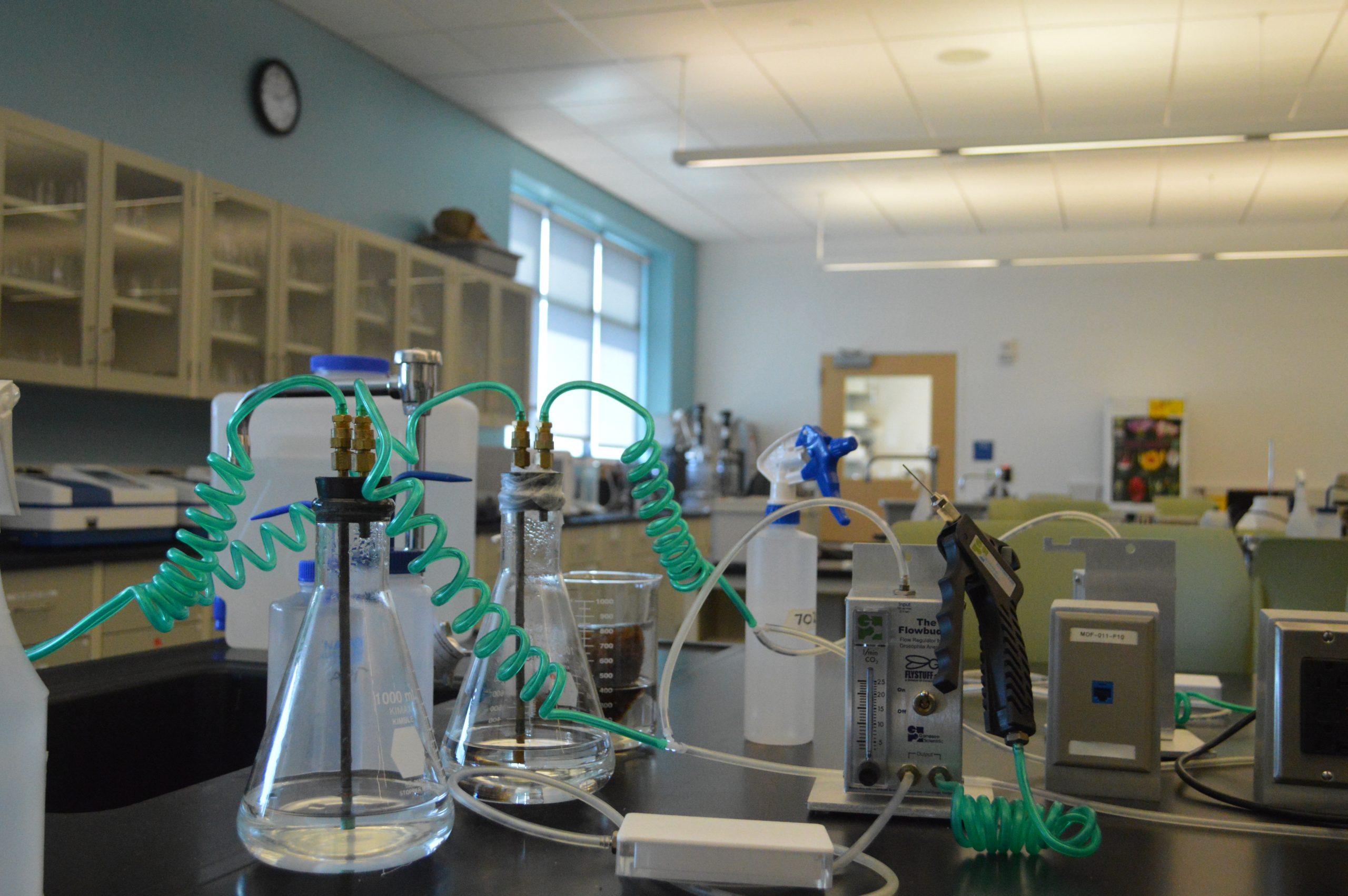You can have the greatest educational marks, but companies want and need to see the professional experience.

Quinsigamond Community College (QCC) Professor of Biology and Coordinator of its Biotechnology Program, Benjamin Benton, does not pull punches when discussing the importance of students, at QCC or any two-year or four-year institution, gaining professional experience while earning their degrees.
“There could be no doubt that you have the hard skills, but companies now want to see experience in the professional setting,” said Professor Benton. “They want to present a student with a job opportunity and for the student to understand the expectations for that role and the approach and attitude needed in a workplace setting.”
In a very competitive job market in the life sciences ecosystem of Massachusetts, the focus for QCC is on providing proper education and training matched with the experiential learning opportunities needed to produce well-rounded students that are ready to enter the workforce. Many of those opportunities have been made possible through the Massachusetts Life Sciences Center (MLSC) Internship Challenge. The workforce development program enables small companies to hire paid interns by connecting them with candidates through an online platform and reimbursing them for intern stipends. Since 2009, the program has facilitated 26 internships for QCC students.
“It really comes down to the soft skills development,” added Professor Benton. “It’s the number one point of emphasis I hear from employers. Internships are a critical part of our students’ education and development in entering the workforce.”
For Professor Benton and his colleagues, they appreciate that companies in the life sciences field want quick learners, with basic knowledge, who know their way around routine lab equipment. The internships offered to these students will then build upon that foundational knowledge and skills and ready the students to become more acclimated with cutting-edge, specialized equipment during their internship.
“This is why the MLSC funding has been incredibly essential to our campus,” said Professor Benton.
The MLSC awarded QCC three grants totaling more than $5.8 million to enhance life science programming at the college, and more fully equip its life sciences labs in Southbridge and downtown Worcester. Additionally, MLSC funding enhanced the college’s life sciences training facilities, including furnishing and equipping specialized labs in QCC’s 30,000 square-foot QuEST Center (Quinsigamond Engineering, Science and Technology Center) located on its main campus in Worcester. These labs support biotechnology, biology and chemistry career and transfer programs.

In overseeing the college’s burgeoning biotechnology program, Professor Benton, who also brings more than a decade of industry experience, has seen how internships help students solidify what they want to do in biotech, a vast field that can be challenging at first glance to understand the variety of jobs it can offer.
“The internship helps them find out if they love it and that solidifies their direction or it gives them the opportunity to realize, early on, this particular role or career is not what they want to pursue,” noted Professor Benton. “Either way, they have the ability to use that experience to influence their education and career planning.”
QCC encourages students to start early to have the opportunity to have multiple experiences with multiple companies and fields. There is not just one way of doing something, even for companies in the same or similar fields, so students can take advantage of the diversity of training and practices different companies will utilize.
Professor Benton also believes that the Internship Challenge has come at the perfect time for the campus and the central Massachusetts cluster of life sciences activity.
“It helps the small-to-medium sized company to bring talent in that they might not have otherwise had access to and of course it helps the student as it creates more opportunity,” said Professor Benton. “Our students want to stay local. There is a lot of opportunity building in this region.”
QCC has two biotechnology-related majors. The first is a degree program aimed toward students looking to earn their associate’s degree and enter the workforce right away. This track is ideal to match students with companies through the Internship Challenge. The other track is for students whose education and career goals are best suited with pursuing a bachelor’s degree at a four-year institution, following their time at QCC. The campus has worked closely with the state and regional four-year colleges and universities to increase accessibility for students looking to make this transition.
However, the key takeaway for Professor Benton and QCC’s biotechnology faculty is no matter the size or scope of the institution and its degree offerings, professional experience matters. In partnership with the MLSC, the college is preparing its students to enter a thriving life sciences sector.
“Our students are non-traditional, sometimes older, maybe changing careers,” said Professor Benton. “But with that, they are bringing more maturity, which in turn, works well for companies, who want a mature and responsible team member. Moreover, I believe our students are top tier at the technical skill level, whether compared to their peers at two-year or four-year institutions, because we are and will remain hyper-focused on it.”
In celebration of 10 years of the Internship Challenge, past and current interns, companies, and colleges and universities are encouraged to share their story.



